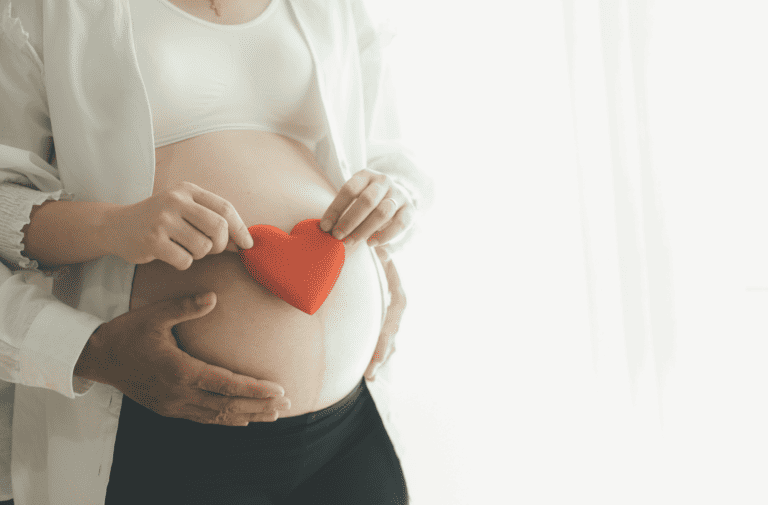Woman's Health & Fertility
Acupuncture for Gynecological Issues
Many women will experience gynecological issues at some time in their lives, especially with hormones constantly changing from adolescence through pregnancy and menopause. Still, acupuncture therapy could assist in restoring balance at any stage of a woman’s life.
Acupuncture tries to help restore imbalances and reassert equilibrium within the body by inserting needles into specific acupoints. The placement of needles into these precise acupoints then causes pathogens to leave the body, alleviating pain and allowing hormones to rebalance themselves. Such therapies have been utilized in Chinese medicine for thousands of years.
Breaking barriers, building families
Dr. Parastoo Taghinia, as a specialist in women’s health and fertility is to help you achieve the highest possible health and wellness and achieve your dream of having a baby. No matter how you approach your fertility therapy (through IVF, IUI, etc.) or prefer to take a natural approach, acupuncture and Herbal Medicine are a great way to increase your chances of becoming pregnant and having a child by improving blood circulation to reproductive organs, regulating hormone imbalance, helping follicles grow, and relieving stress and anxiety that you may experience on your fertility journey. The treatment is not just for your reproductive system when using a holistic approach. It extends beyond the entire bodily system since all systems must be well-balanced to promote reproduction.


Fertility
If your infertility is due to one of the following factors, acupuncture can significantly increase your chances of becoming pregnant:
• Male infertility (poor sperm quality, low count, motility, and/or morphology)
Regarding fertility, men can experience a wide range of issues. Low sperm production, poor sperm function, or obstructions that limit sperm delivery are all causes of male infertility. Chronic health issues, lifestyle choices, injuries, illness, and other things can play a role in causing male infertility.
Chinese Medicine for Male Infertility
Chinese Medicine offers a drug-free, natural therapy for male infertility. These therapies aim to address the underlying causes of male infertility disorders, such as abnormal sperm production, sperm function, premature ejaculation blockage in the testicle, and others, as well as correcting any inadequacies that are causing infertility in males.
Acupuncture and Chinese medicine therapies for male infertility are intended to help you reduce stress, enhance your blood flow, and provide your body with the support it requires to repair itself. It aims to improve sperm quality in quantity, morphology, motility, and liquefaction.

Acupuncture for Male Fertility
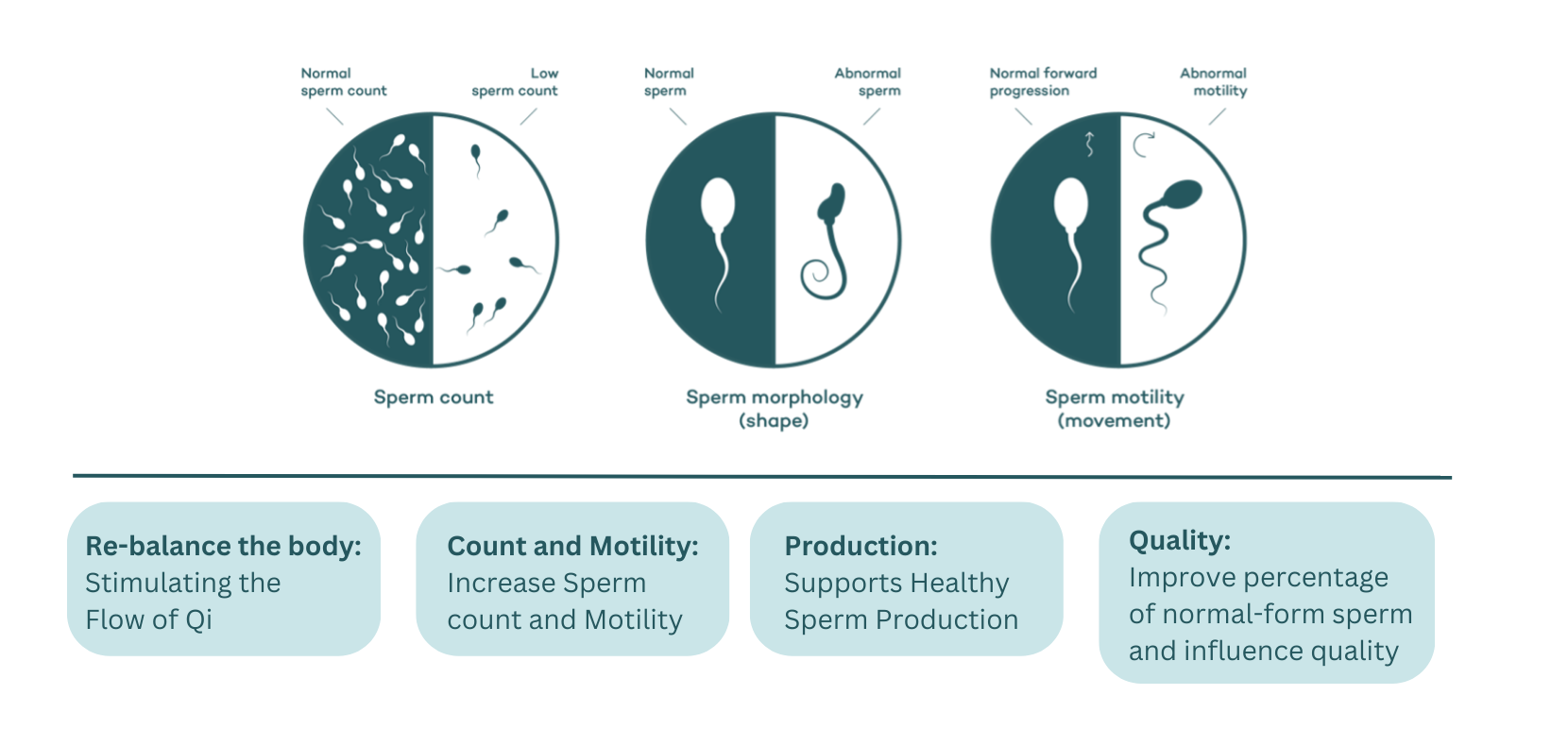
• Polycystic Ovarian Syndrome (PCOS)
What is PCOS?
PCOS is one of the leading causes of infertility among women of childbearing age, caused by an imbalance in the reproductive hormones that negatively impact ovulation. The term “polycystic” means many cysts. The condition is often characterized by the formation of fluid-filled sacs on ovaries, which may also be larger than average in size. When a woman has PCOS, her sex hormone levels–including estrogen, progesterone, and testosterone–change, which can cause abnormal body or facial hair growth, weight gain, blood sugar issues, acne, and irregular menstruation periods.
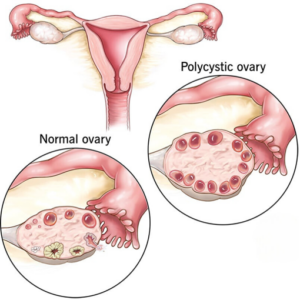
What Causes PCOS?
The cause of PCOS can be hormonal, genetic, environmental, or a mix.
Chinese Medicine for PCOS Fertility
Some women with PCOS can spend months or even years without a period or will menstruate irregularly. For women with PCOS who do not ovulate but desire to become pregnant, Chinese herbal Medicine can boost the production of a hormone from the head called follicle-stimulating hormone (FSH), which increases the growth of ovarian follicles.
As PCOS is strongly related to insulin level and glucose metabolism, diet and lifestyle changes can significantly impact balancing your hormones. Acupuncture and herbal medicine methods for PCOS regulate menstrual cycles, dissolve cysts, improve digestion, improve egg quality, encourage conception, and prevent a miscarriage once pregnancy is reached.
• Endometriosis

Endometriosis is one of the most common gynecological conditions that affects approximately over 190 million women globally of reproductive age. This condition involves a woman’s monthly cycle painfully and can significantly impact her fertility.
What is Endometriosis, causes and Symptoms
Endometriosis is a gynecological condition in which tissue that resembles the uterine lining begins to develop in other locations, such as the ovaries and fallopian tubes. This tissue accumulation may cause adhesions, which are “sticky” areas of tissue that can lead organs to fuse.
It is still unclear what causes Endometriosis specifically: This is assumed to result from obstructions or damage to the ovaries or fallopian tubes. We know that Endometriosis has a hereditary component since women with a mother or sister with the disease are six times more likely to have it themselves.
Endometriosis symptoms include: the lower abdomen, pelvis, and lower back pain. This pain frequently worsens in the days preceding menstruation and can persist for several days afterward. This illness can also cause painful bowel movements, severe menstrual pain, and heavy menstrual cycles.
Western Medicine Treatment for Endometriosis
According to Western Medicine, increased stress levels, obesity, poor nutrition, and genetic factors can all lead to the development of endometriosis. Although endometriosis cannot be cured, various options are provided to relieve pain, alleviate symptoms, and support fertility. Multiple factors would determine the best treatment, such as the severity of the condition, the severity of symptoms, and if a woman would want to have children.
Frequently prescribed treatments include:
- Hormone Therapy: Oral contraceptives (birth control tablets) are the most often used hormone treatment for endometriosis. Estrogen is the hormone that promotes endometrial tissue proliferation. Oral contraceptives reduce the amount of estrogen in the body, and contraception can also help reduce the tissue’s size. Progesterone and GnRH analogs are two more hormones utilized to relieve symptoms.
- Pain Medication: Nonsteroidal anti-inflammatory medicines (NSAIDS), such as Ibuprofen, help reduce pain levels.
- Surgical Treatment: Laparoscopy is utilized to remove scar tissue, cysts, and other endometriosis-related growths.
- Hysterectomy: The alternative technique in a worst-case situation would be surgery to remove a woman’s womb or other organs damaged by endometriosis.
Endometriosis and Infertility
Endometriosis can affect fertility through the blockage in the fallopian tubes, and it can affect sperm traveling to an embryo or affect the egg traveling to the uterus.
Endometriosis and Chinese Medicine
Over the last 3,000 years, Chinese Medicine has been used to treat the underlying cause of endometriosis and its associated symptoms.
Endometriosis, or irregular painful periods, can be explained by Chinese Medicine as a combination of energy stagnation and poor circulation. Interestingly, Traditional Chinese Medicine does not classify endometriosis as a disease; it is a symptom of Stagnant Qi (restricted blood circulation) and Kidney yang deficiency (which affects metabolism). Chinese Medicine, particularly through Herbs, can boost the body’s innate ability to heal itself and naturally balance its hormone levels.
The ideal nutrition for endometriosis
The optimal nutrition for endometriosis is a warming food, like soup. Sugar, beef, and dairy products all aggravate this condition and should be avoided. Other problematic foods include nuts, oils, fats, pork, chocolate, citrus fruits, and apples. Alcohol is also dampening and should be avoided.
• Amenorrhea
Amenorrhea is a typical medical condition. There are several causes of amenorrhea as well as various risks associated with not having a period. Normally, a woman’s period should occur every 23 to 35 days. Amenorrhea comes in two forms. When a woman has never experienced her first period, she is considered primary. Secondary- When a woman has had periods in the past but hasn’t had any period for three months or more. However, according to the principles of Traditional Chinese Medicine, if you fall into second category, this common women’s health concern is caused by stress, over work, excessive exercise, and unhealthy lifestyle especially unhealthy diet.

Natural Chinese Medicine therapy for amenorrhea (absent period)
Chinese medicine employs some natural, non-invasive, drug-free therapies such as Acupuncture, Moxibustion, Cupping, and Herbal Supplements. They can work individually or in combination together for better outcomes.
The aim of Chinese Medicine treatment is to balance hormones by increasing blood circulation, unblocking energy pathways, and eliminating accumulated toxins.

• Recurrent Miscarriage
A miscarriage is the termination of a pregnancy before 20 weeks of gestation. In the first 12 weeks of pregnancy, nearly 20% of pregnancies terminate in miscarriage. If you have experienced two or more consecutive miscarriages, you may suffer from recurrent miscarriages, also known as habitual pregnancy loss.
Possible Causes:
- Genetic
- uterus shaped abnormally
- Fibroids in the uterus
- Hormonal imbalances
- conditions such as diabetes and thyroid dysfunction
- smoking, caffeine, and alcohol use, as well as the usage of certain drugs
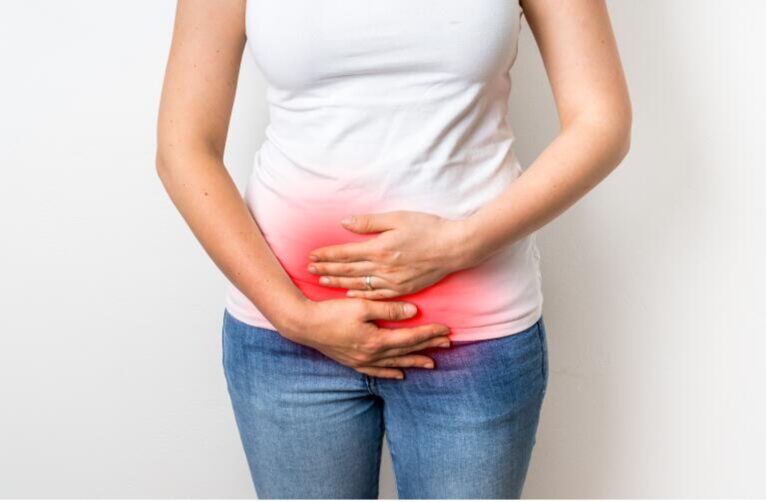
• Cold Uterus and Miscarriage
The cold uterus is frequently the underlying cause of fertility issues. If you are having trouble becoming pregnant and feel like you have done pretty much everything, it might be time to have a different approach and look deeper into the issue. So, what exactly is a cold uterus, and how can you warm up a cold uterus to boost fertility.
The uterus (or womb) is a hollow, pear-shaped organ in a woman’s pelvis. The uterus is where the fetus develops and grows and is responsible for a woman’s menstrual cycle. The uterus plays a significant role in the ability to conceive. These factors, including the shape of the uterus and some congenital uterus defects, can contribute to infertility. However, body temperature plays a significant factor in the development of infertility. Body temperature also is a very important part of Traditional Chinese Medicine; warming energy is known as yang. Yang is the warming energy that promotes optimal hormonal response to aid reproduction.
According to Traditional Chinese Medicine, a cold uterus can cause miscarriages. Although this idea is not frequently recognized in Western obstetrics, there is evidence to suggest that lower body temperature (around.5°F), particularly in early pregnancy, may be related to an increased risk of miscarriage. Chinese Medicine holds that a Cold uterus can cause poor blood flow to the reproductive organs, failure to nourish and retain a fertilized egg, narrow blood vessels, cessation of cell division resulting in menstruation, inflammation in the uterus resulting in unstable implantation, or lacks nutrition to support embryo development and growth, resulting in miscarriage.
Common sign and symptoms of a cold uterus (yang deficiency)
- Felling cold
- Having cold hands and feet
- Lack of libido
- Fatigue
- Urinating more often than usual
- Low basal body temperature during the luteal phase of the menstrual cycle
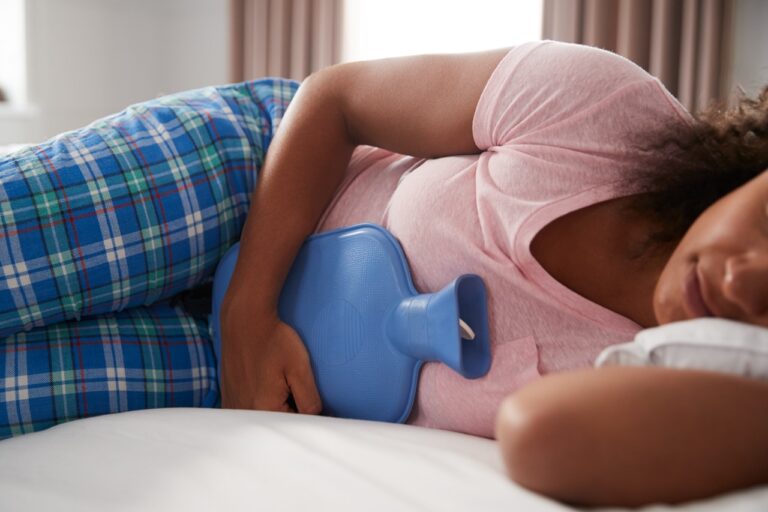
How can a cold Uterus lead to miscarriage?
The embryo has a limited time to implant into the uterus during fertilization. Implantation in the uterus requires essential nutrients for embryo development. Any deficiency or weakness in the uterus can result in a miscarriage. One of the primary reasons why a chilly uterus might contribute to miscarriage is that it causes impaired blood circulation in the uterus.
How do you treat cold in the Uterus?
- Lifestyle Changes: Increase the temperature in your home or office to help prevent yourself from getting too cold if you live in a cold country. According to Chinese Medicine, cold feet are related to a cold uterus. Cold hands and feet are a significant indicator of yang deficiency (a lack of warm energy). Meridians in your foot link to your reproductive organs. So, keeping your feet warm is critical. Wear warmer clothing, and keep your feet warm with slippers and socks. When feeling cold, you can even use a hot water bottle and heating pads on your abdomen.
- Diet: If your body is yang deficient, you can start by including as many warming foods in your diet. Consuming more cooked foods is also a good idea because the food absorbs the cooking heat and generates body heat, stimulating circulation. Consume warm food and beverages such as:
-
- Drink warm beverages such as ginger tea or hot water with lemon
- Avoid cold and raw foods such as salads
- Avoid cold drinks
- Eat warm cooked food
- Foods like dairy, seafood, and meat are also warming for the body
- Ingredients such as white pepper, ginger, garlic, and walnuts also have warming properties
- Moxibustion: Moxibustion is an ancient practice that includes burning a herb (mug wort) on or near the skin to alleviate cold, strengthen the blood, encourage Qi flow, and preserve overall health. Moxibustion is frequently used with acupuncture to stimulate kidney Yang and treat a cold womb/ uterus.
Chinese Medicine for Cold Uterus and Infertility
Traditional Chinese Medicine can undoubtedly assist with Cold Uterus and Infertility problems.
Warming the Uterus help improve fertility and healthy conception by:
Improves Uterus lining
Acts as a catalyst for ovulation
Increase embryo implantation condition
Unexplained fertility concerns
Reduce the chance of miscarriage
Increase IVF success rate
Improves quality of eggs
Warming up a cold uterus (creating the desired temperature for an embryo to flourish)
Reduce Menstrual discomfort (period cramps, heavy period flow, inflammation of the pelvic area)
• AMH/ FSH LEVEL
Every woman is born with a certain number of eggs, and this is referred to as the ovarian reserve. The word “ovarian reserve” refers to the ovary’s ability to produce egg cells capable of fertilization, resulting in a healthy and successful pregnancy. As a woman ages, her ovarian reserve naturally decreases until she achieves menopause. Anti-Mullerian hormone (AMH) and follicle-stimulating hormone (FSH) are two female reproductive hormones that can be measured to represent ovarian reserve and, consequently, a woman’s fertility. Infertility is associated with low AMH levels and rising FSH levels.
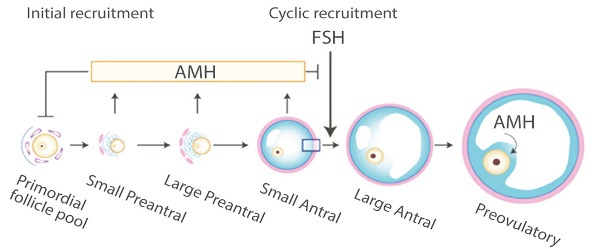
What is a good AMH level for your age?
What is a good AMH level for your age? AMH levels naturally decrease with age, so it’s normal to see a lower ovarian reserve in your 30’s, 40’s, and 50’s.
For real numbers, consider these estimates, which are on the lower side of the range for each age:
- 25 years old: 0 ng/mL
- 30 years old:5 ng/mL
- 35 years old:5 ng/mL
- 40 years old: 1 ng/mL
- 45 years old:5 ng/mL
Increase AMH
- PCOS
Higher AMH levels are not always a good thing. AMH may be increased in some people with polycystic ovary syndrome (PCOS).
Decrease AMH
- Increasing age
- Increase body mass index
- Administration of Chemotherapy or Radiation
- Administration of gonadotropin
- Oophorectomy
Not Influence
- Day of the menstrual Cycle
- Oral Contraceptive
- GnRH agonists
- Pregnancy
How can Chinese Medicine help with Infertility due to low Ovarian Reserve (AMH & FSH)
In Chinese medicine, Anti-Mullerian Hormone (AMH) and Follicle Stimulating Hormone (FSH) levels are viewed as the result of an underlying imbalance rather than the cause of fertility issues. In Chinese Medicine, the goal of fertility therapy for low ovarian reserve or poor egg quality treatment is to help the body function at its optimum by restoring reproductive health and promoting a balanced system.
These therapies employ natural holistic approaches that have been performed for centuries to get to the underlying cause of infertility and address any deficiencies, giving you the best chance of conceiving.
- Women over 36 who have been tried for six months and are unable to conceive
- women under 36 who have been tried for twelve months and are unable to conceive
- women who want to use IVF or egg freezing but have a poor ovarian reserve
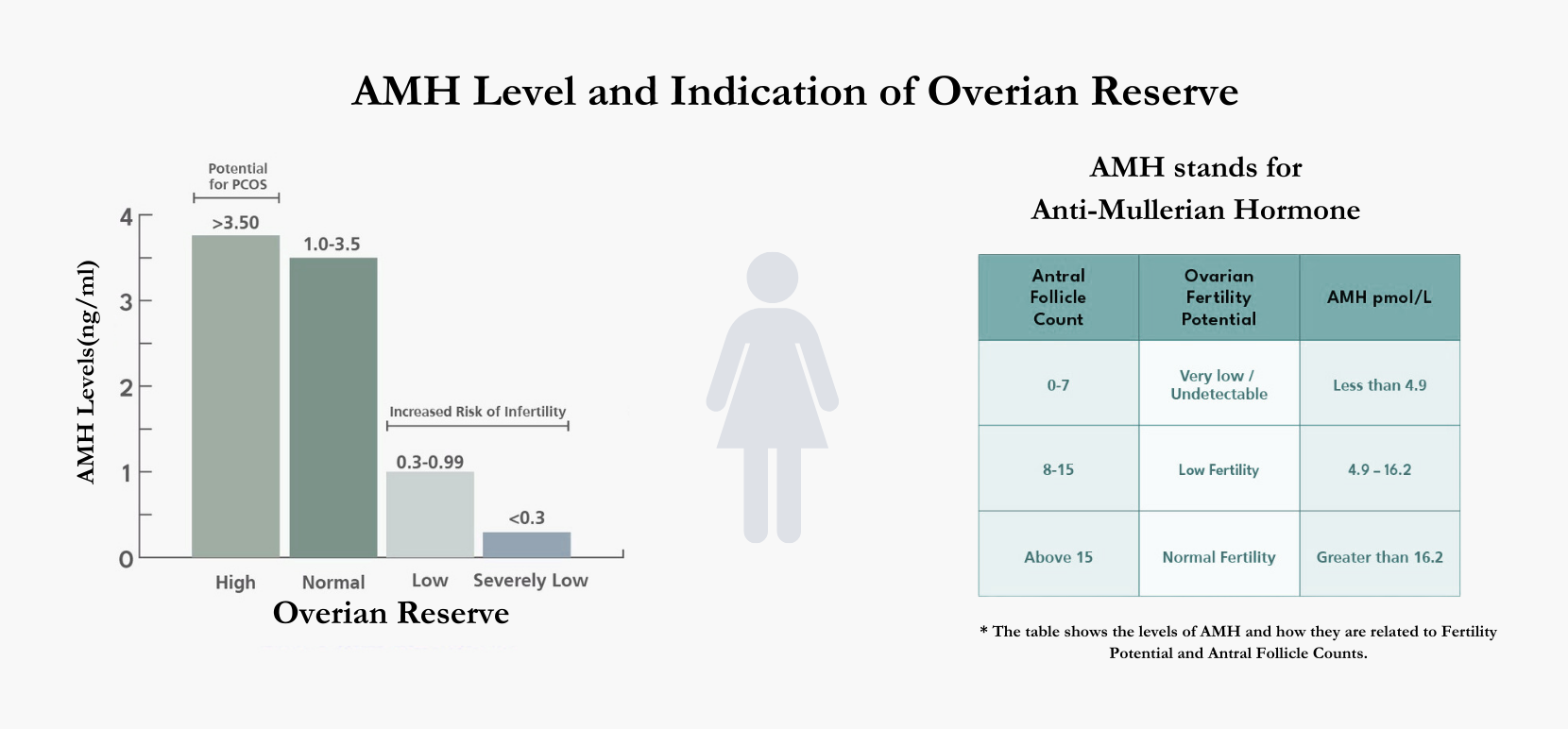
• IVF and IUI
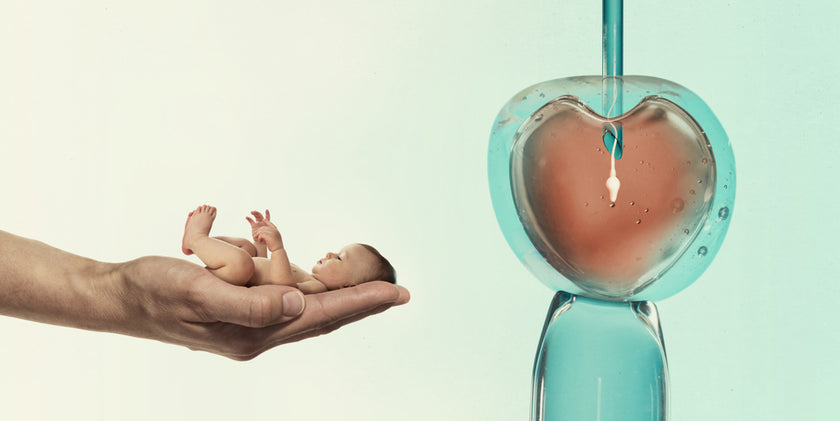
Chinese Medicine to Boost IVF & IUI
Chinese Medicine is most effective when combined with a Western fertility treatment such as IVF, IUI, or other methods of assisted fertility treatment can increase your chance of having a successful pregnancy. Clinical studies have shown that using Chinese therapeutic techniques such as acupuncture in combination with IVF and IUI increases success rates by 65% compared to not using them.
Chinese Medicine to Boost IVF & IUI Success
Chinese Medicine treatment for IVF, such as acupuncture, can be combined with IVF/IUI to boost IVF success significantly. Acupuncture can be used in various stages to improve your IVF success rate, including acupuncture before IVF, during, and acupuncture after the embryo transfer.
Studies have shown acupuncture increases the chance of successful implantation by:
Helping Uterus lining – IVF patients can thicken their endometrial lining, resulting in a higher rate of implantation and pregnancy.
Promote quality eggs – Acupuncture improves medication delivery to the ovaries by increasing blood flow to the reproductive organs.
Increasing blood circulation
Improving immune system balance
Providing health and lifestyle advice
How Does Acupuncture for Fertility Work?
- Acupuncture helps lower stress levels and increase overall Well-being when trying to conceive: Treatment aids in the production of serotonin, the happy hormone, and the lowering of cortisol, the stress hormone.
- Promote relaxation
- Regulate menstrual cycles
- Boosts uterine blood flow
- Reduce anxiety
- Relief of symptoms and side effects related to IVF
Does Acupuncture Always Work for Infertility?
Acupuncture can help, but not always. Unfortunately, acupuncture, like IVF, does not always work. Many studies demonstrate that while receiving acupuncture is preferable than not receiving acupuncture, it can only raise your chance. It cannot provide assurance.
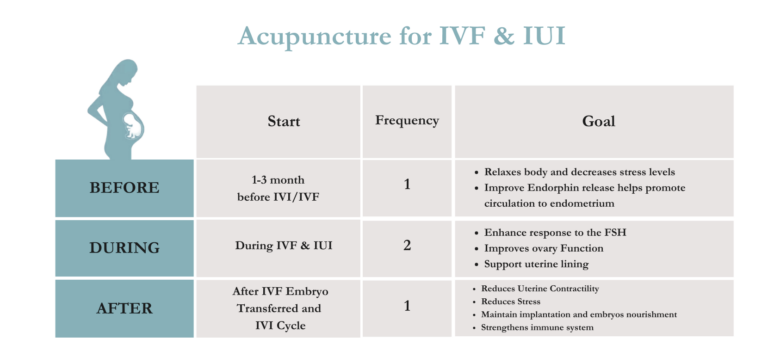
• Thin Uterine lining and unresponsive Endometrium
What Is a Thin Endometrial Lining?
The uterus has three layers: the inner, intermediate, and outer. The innermost layer is called the endometrium. A healthy endometrial lining is thick enough to allow a fertilized egg to implant properly. Additionally, it nourishes the fetus, allowing it to develop. Implantation will not take place if the endometrial lining is thin.What causes a thin endometrial lining?
Blood flow to the uterus can occasionally be limited.
The endometrial lining needs estrogen to develop to the ideal thickness. The endometrial lining can become weakened when this hormone is lacking.
Uterine fibroids can obstruct endometrial shedding and regeneration of the endometrial lining. This can cause numerous complications for an embryo attempting to implant in the endometrial lining. Natural remedies like acupuncture and Herbal medicine help shrink uterine fibroids.
Scar tissue in the uterus can result from C-sections and other surgical procedures. Also, bacterial infection can inhibit the endometrial lining from growing normally.
Clomid is a fertility drug utilized to stimulate ovulation. If used continuously for three cycles, it can cause to thin the endometrium lining. Natural remedies like acupuncture and castor oil by placing it on the skin above the uterus and the ovaries are treatments can help bring the hormones back into balance
The endometrial lining may become thin and dysfunctional in long-term birth control pill users.
Inactivity, overexercise, hunger, smoking, and other lifestyle variables can all contribute to endometrial thinning. Women, for example, tend to break down muscular tissue for fuel when they are starved, including uterine muscles, which can weaken and decrease uterine contractions.
How Do I know If the Lining of My Endometrium Is Too Thin?
A thin endometrium lining lacks the proper nutrients and can cause uterine weakening, making it challenging for embryo to implant or obtain adequate nourishment throughout the pregnancy. Women sometimes may not be aware their lining is very thin until they have difficulty conceiving or see it on an ultrasound. However, there are a few symptoms associated with a thin endometrial lining, such as these:
- Light periods
- Painful and irregular periods
- Early miscarriages
- Bleeding that occurs between periods
- Infertility
• Over 40
It has become common knowledge that women’s fertility declines with age. Once the woman reaches 40 years of age, the quality and quantity of the eggs reduce along with the quality of the embryo after fertilization.
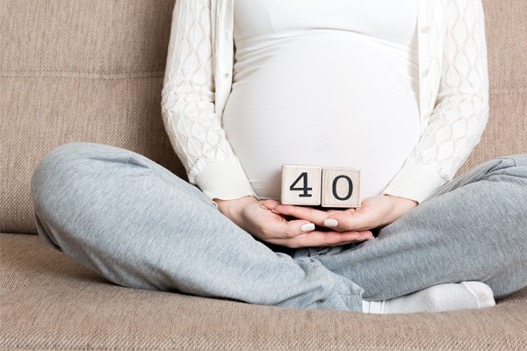
Chinese Medicine for Fertility Over 40
Traditional Chinese Medicine treatment offers a range of natural, drug-free fertility treatments for women over 40, including acupuncture and herbal Medicine, to conceive naturally or improve the success rate of IVF and IUI despite your age and without any side effects.
Chinese Medicine treatment for pregnancy over 40 is a holistic approach that considers all factors that could contribute to infertility, such as diet, stress levels, exercise habits, and day-to-day lifestyle.
• How Long does It Take to Get Pregnant?
Most couples will get pregnant within 5-6 months if they have regular sex and do not use contraception. Regularly without contraception, sex is defined as having sexual activity every 2-3 days, particularly during ovulation. Women, on the other hand, become less fertile as they get older. Typically, 8 out of 10 couples with women under 40 will get pregnant within the first year of trying. If you are 35 or younger and have been trying for a year, or if you are 35 or older and have been trying for more than six months, meeting with Dr. Parastoo Taghinia specialist in women’s health and fertility, can assess your fertility conditions.
